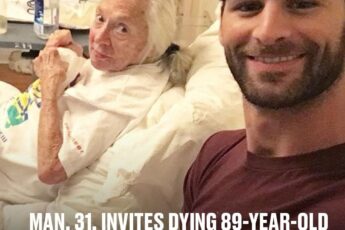Karoline Leavitt, a young conservative voice who has been steadily building her presence in politics and media, is no stranger to public attention. As one of the youngest women to run for Congress and a frequent Fox News contributor, she has often faced the scrutiny that comes with a growing profile. But nothing could have prepared her for the humbling and unexpected experience she encountered one afternoon at Boston Logan Airport, when what should have been a routine moment of comfort turned into a viral incident about judgment, dignity, and respect.
Arriving at the airport dressed simply—jeans, a fitted jacket, and her hair tied back—Karoline carried herself with quiet confidence. She wasn’t surrounded by aides or security, nor did she make an effort to broadcast who she was. To her, it was just another day of travel, and she intended to relax in the VIP lounge before her flight. She walked up to the counter, ready to present her membership and credentials, only to be met with suspicion from the staff.
The attendant on duty, a young man named Taylor, gave her a once-over and hesitated. “Are you sure you’re in the right place?” he asked politely but firmly, as though certain she didn’t belong. Taken aback, Karoline explained that she had access to the lounge and handed over her information. Instead of welcoming her in, Taylor frowned and called over his supervisor, a man named Ben, who seemed just as doubtful.
Together, they reviewed her membership and claimed it was outdated, citing vague policies that Karoline knew were not accurate. Calmly, she insisted that her access was valid. She explained she had used the same credentials recently without issue. Yet the two employees refused to budge. Their tone shifted from uncertainty to dismissal, and within minutes, Karoline was told she needed to leave.
The moment might have ended quietly, a simple inconvenience, had it not been for the way it unfolded. Other travelers noticed what was happening and began recording on their phones. Here was a public figure, recognizable to many, being denied entry and treated as though she was attempting to sneak into a space where she did not belong. The images of her standing at the counter, visibly uncomfortable yet maintaining her composure, quickly spread online. Clips of the exchange showed Taylor and Ben standing firm while Karoline, still poised, tried to clarify her status before finally being escorted out.
For Karoline, it was deeply humiliating. She wasn’t angry in the moment as much as she was disappointed. The rejection wasn’t about her celebrity status—it was about being dismissed based on assumptions. She wasn’t dressed in designer clothes or traveling with a team, and that seemed to be enough for the staff to decide she didn’t fit the image of a VIP traveler.
When the video went viral, the response was immediate. People online criticized the lounge staff for their behavior, pointing out how quickly they had judged her based on appearance rather than facts. Supporters and critics alike agreed that no one, famous or not, should be treated that way. Some noted the irony that a woman who has built a career on strong public messaging and resilience was caught in such a vulnerable, everyday situation, facing the kind of casual dismissal many ordinary travelers experience but rarely have the platform to spotlight.
The incident reached the desk of William Hartford, the CEO of the hospitality company that oversees the airport’s lounges. Known for his hands-on leadership style, Hartford wasted no time. Within an hour, he was at the airport, accompanied by senior staff. He personally sought out Karoline to deliver an apology.
“I’m responsible,” Hartford said directly, looking her in the eye. “You deserved better. This isn’t how we should treat anyone.”
Karoline, still shaken but composed, accepted his words with grace. “I appreciate that,” she replied softly. “But you know, it’s not about me. You shouldn’t need to recognize me to treat me with respect. You should recognize humanity.”
Those words, simple yet profound, struck a chord. They echoed the very frustration that had made the video so viral: the idea that dignity should not be reserved for those who “look the part” or are widely recognized.
In an unexpected turn, Hartford didn’t just apologize—he extended an invitation. He asked Karoline to join in developing a new training program for his staff, one that would emphasize customer respect, empathy, and awareness of unconscious bias. It wasn’t about checking boxes on diversity or hospitality guidelines; it was about creating a culture where people are seen and valued regardless of how they present themselves.
Karoline agreed. For her, it was an opportunity to turn an embarrassing episode into something meaningful. She knew what it was like to feel underestimated, to walk into rooms where people assumed her age or appearance meant she didn’t belong. By lending her perspective, she hoped to help ensure that others—whether travelers in airports or customers in any setting—would not have to experience the same kind of quiet humiliation she had faced that day.
What could have been just another internet moment, quickly forgotten in the endless churn of viral clips, became something more. It sparked conversations about assumptions, respect, and the little ways we either affirm or deny each other’s humanity in public spaces. The story of a young woman being turned away at an airport lounge became a lesson in empathy and accountability, reminding both staff and travelers that every person who steps up to a counter deserves to be met with patience and fairness, not judgment.
For Karoline Leavitt, the incident added another layer to her growing public profile. Beyond politics, media appearances, and the spotlight of her career, she showed resilience in the face of embarrassment and grace in her response. She reminded everyone watching that the real measure of leadership isn’t in avoiding hardship, but in how one transforms it into progress. What began as a moment of dismissal ended as a chance to build something better—not just for her, but for everyone who might one day stand in her shoes at a counter, quietly hoping to be seen.






